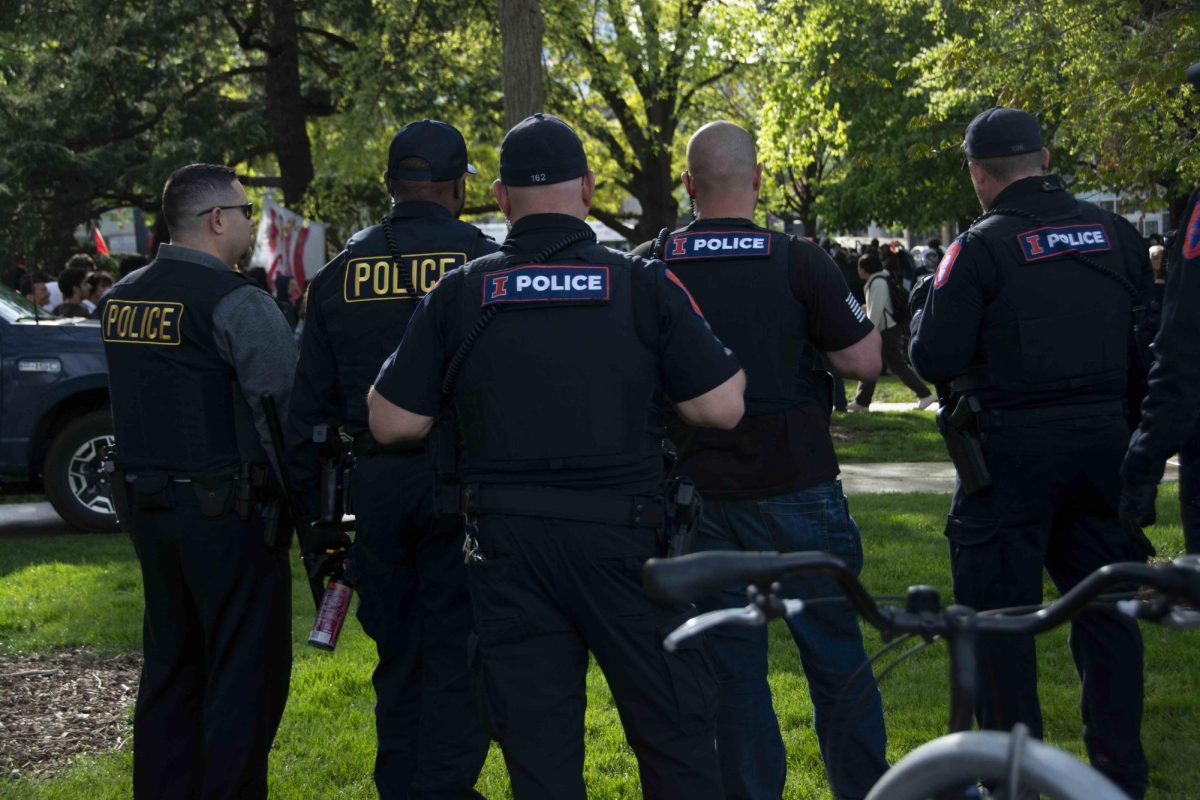Many of the prevention and safety responses to the recent increase in campus area crime are programs or features that are also in place or in the works at other Big Ten schools.
For example, the University is in the process of installing security cameras in and around the residence halls, a move that Indiana University has been implementing over the last five years.
Keith Cash, Indiana University Police chief, said the installation of security cameras helped to solve a rape case last year.
“You can see him taking her into his dorm,” Cash said. “She can’t even walk under her own free will. If you hadn’t had video, no one would have witnessed that.”
Purdue Police Department Lieutenant Eric Chin said the conference began Sunday evening and will go until Tuesday afternoon. He added that the University of Nebraska — Lincoln police chief is involved in this year’s conference although the university will not be in the Big Ten Conference until next year.
Get The Daily Illini in your inbox!
Tyrone Parham, deputy chief of Penn State Police, said his campus also had issues with “peeping Tom” incidents in the residence hall showers this semester. While locks were not installed in the bathrooms as they were at Illinois, the Penn State Police Department had sketches drawn up, interviewed most males in the building and had numerous police patrols, both in plain clothes and uniformed, throughout the dorm.
Although the person has not been identified yet, Parham said the incidents stopped after about a week.
One of the most common security measures among the Big Ten schools is card-access doors in residence halls and escort services similar to the University’s SafeWalks program.
Parham said although the card-access helps, students also have a significant role to play in campus security, specifically with what he calls “piggy-backing,” when students allow people to follow them through the doors to the residence halls.
“Getting students to buy into it is the challenge,” Parham said. “We can’t be everywhere, every place. It’s really a matter of them, as they would do at their house, not letting anyone in.”
Parham said it is important for students to feel their campus is relatively safe, but this sense of safety can sometimes cause students to feel “too safe.” Then, they let their guard down or do not utilize safety features such as late night transportation services, he said.
“That can go against you sometimes,” Parham said.
The University recently hired a private security firm to patrol the residence halls, which is similar to a program at Indiana that has student police officers living in the dormitories.
“We have our own full police academy,” Cash said. “They are all students … those student officers live in the dorms so we actually have police officers living in the dormitories with them.”
Iowa also has full time guards that are in its dorms at night, said Alton Poole, crime prevention specialist for University of Iowa Police.
He added that the security presence within the residence halls has improved student safety.
“I think personally it does help because now you have extra eyes and ears there in the area,” Poole said. “If they see anything, they definitely call us. We respond accordingly.”
Although the Big Ten police departments have similar programs and services, the actual crime data is difficult to compare.
University Police Chief Barbara O’Connor said this is due to factors including weather, surrounding cities, campus size and the size of police department.
“Looking purely at numbers is not necessarily looking at it in context,” she said.
“I think I’m a big believer in studying trends in this business,” O’Connor said. “It’s really a matter of what are the issues and how can we best address those.”




